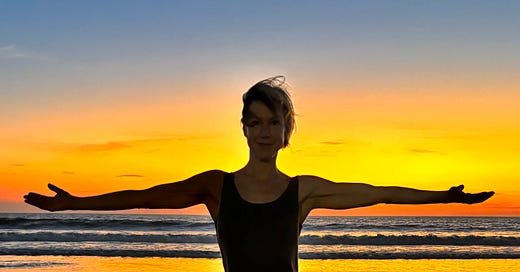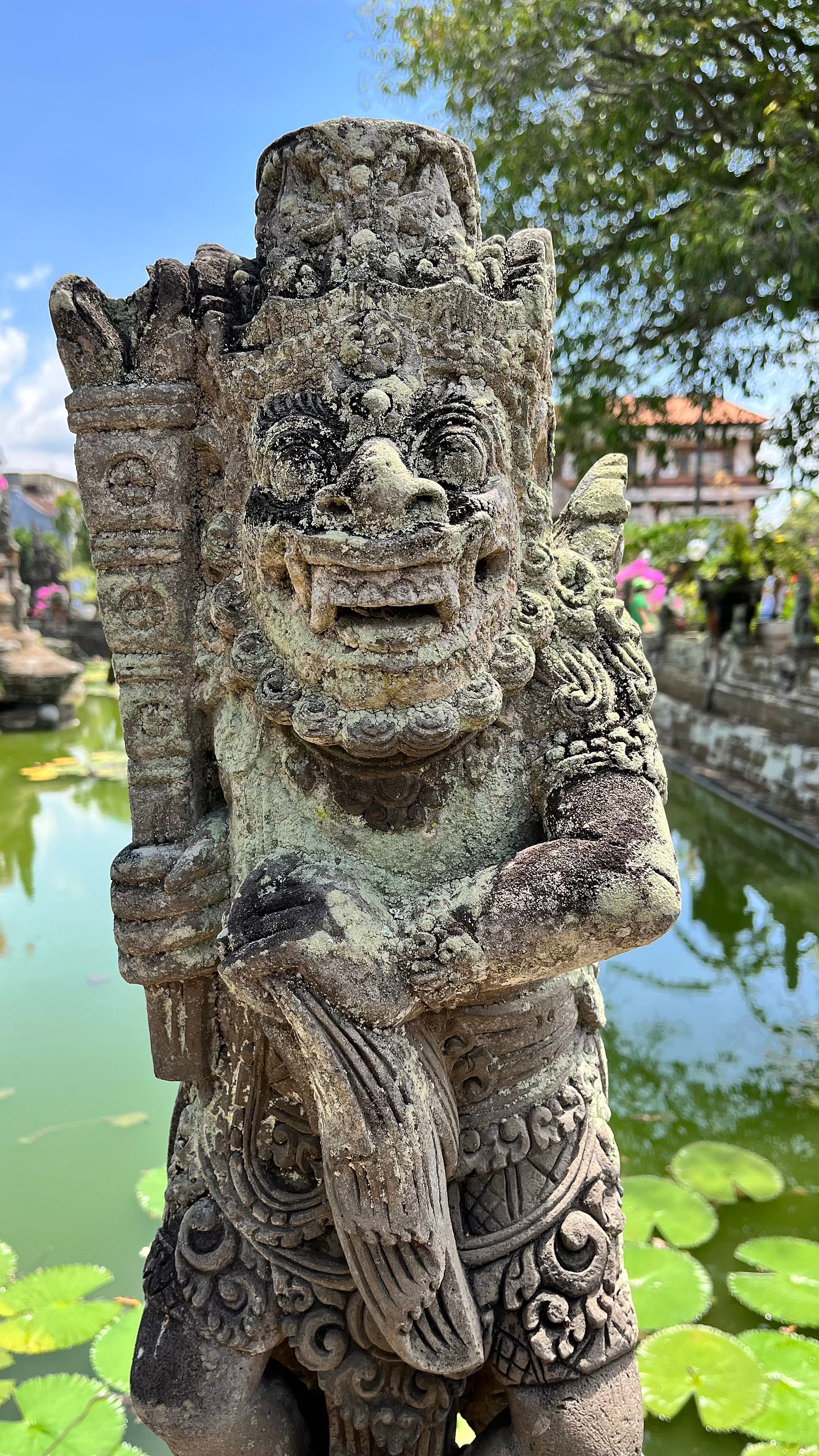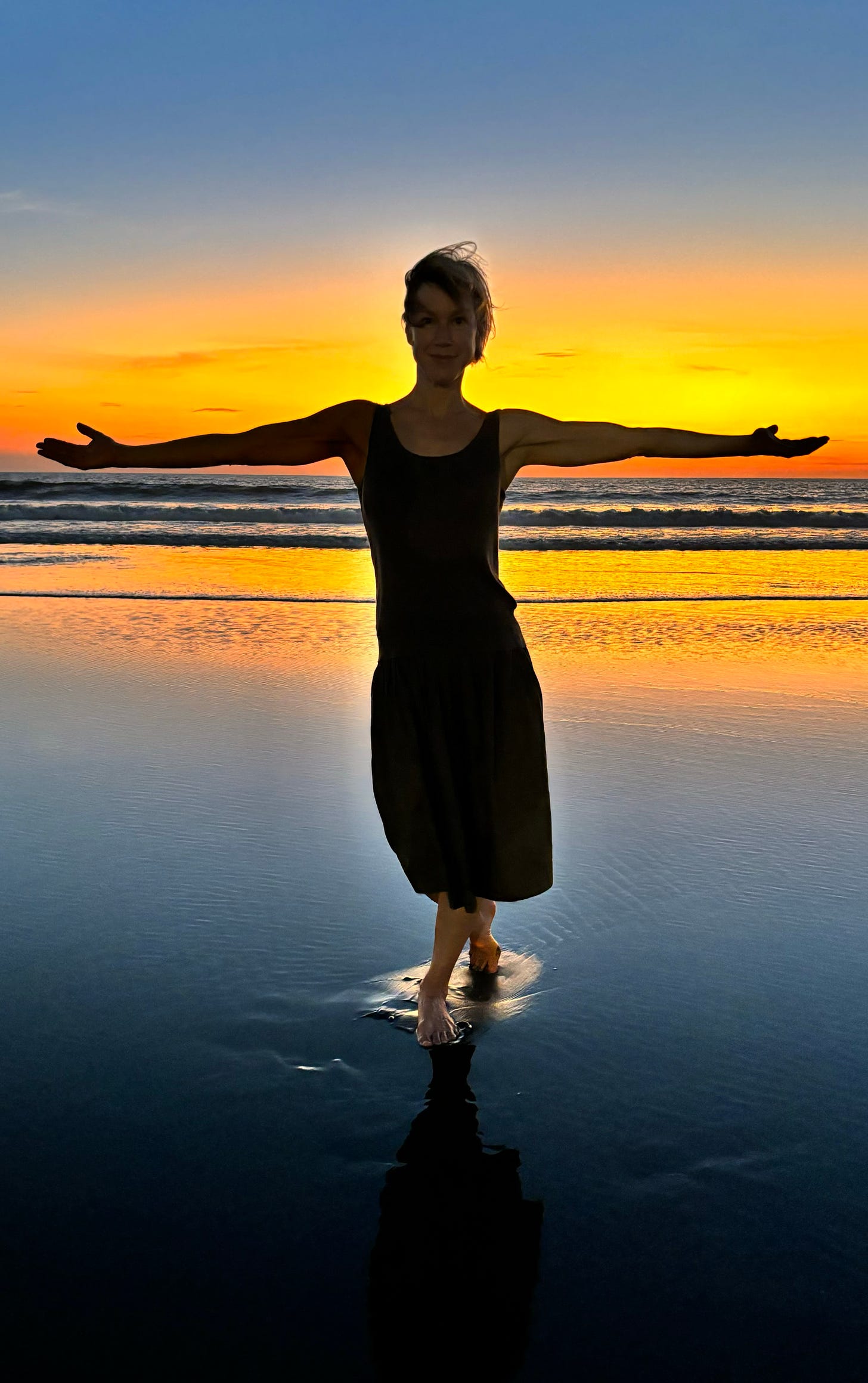🗝️ Let’s Stay Connected
On human intimacy as a small defense against the threat of AI
I don’t want to talk today about the widespread fear of authors to become obsolete, replaced by text-writing machines that have already surpassed us in speed and the ability to recall information.
I’m writing about artificial intelligence because of a video, The AI Dilemma, that I came across in a post by
.The video, free to watch for all, streams a live presentation given at the Aspen Ideas Festival by the makers of “The Social Dilemma”, an enlightening film about the dangers of social media in our society, especially for the young.
The two presenters, Silicon Valley men and co-founders of the Center for Humane Technology, speak about the positive and negative potential of the next generation of powerful artificial intelligence. They show with visual examples and comprehensible speech what a Large Language Model such as ChatGPT can do, and what it means when fMRI images, DNA, and music become part of one super language that AI can use to feed itself new data. (Spoiler: it gains unexpected, unprogrammed skills.)
Watching the presentation made me better understand the threats of AI. Powerful tools falling into the wrong hands and used with fraudulent intent can seriously harm our society.
I don’t know how you respond to warnings, but I tend to take a deep breath. In and out. Whatever worry I’m left with will then motivate me to consider how I might protect myself. Even when a grand solution seems out of reach.
I neither have the power to delay the release of AI into our society nor the knowledge to draft new liability laws. But I wonder: What can I do? What can I do right now from the comfort of my Balinese bungalow?
Not much—I cannot even keep the bugs out of my bed—but there ought to be something within my control that might be helpful.
Into a creative spin I go, linking trusted ideas to fresh concepts, personal experiences to read-about events, confirmed facts to insightful speculations. I think about the misinformation already so prevalent on the internet and Naomi Klein’s excellent new book Doppelganger. About our social media personalities, our shadow selves and shallow doubles—the theater of online life. About the personal coaching practice a friend recently launched focused on authenticity, a theme I keep circling back to. About how unsettling it feels that I must solve puzzles (“pick the pig”) to prove I’m a human whenever I connect to a website with a foreign VPN and how often the website blocks me regardless. I consider the lies, conspiracies, and falsified text messages a trickster used to successfully damage my relationship with an in-law. How the preceding years of forced (perhaps fake) pleasantness had created false confidence in the strength of our relationship—the artifice of family. How my novel-in-progress, in which a daughter must recognize her mother in a stranger’s body, relates to deepfakes, The Stepford Wives, The Invasion of the Body Snatchers, and new albums released from dead singers. How we may soon all suffer from what seems to be the reverse of the Capgras syndrome, not spurning our loved ones believing they’re fake, but trusting counterfeit doubles, misidentifying them as the people we love.
Is it time to panic? I can foresee an exponential rise of scams and blackmail, a collapse of our shared reality. Yet somehow, I don’t despair. Instead, I feel… a spark of hope. Because that’s what a creative spin does to me, even when the subject matter is dark.
In a creative spin, we’re working in a flow state, picturing our neurons firing away, getting energized as though we’ve just downed a triple shot of espresso, feeling truths rising, pushing through layers of pretense and myth until we want to scream: Everything is connected to everything else!
And so it is. I understand my hope. Our connections, our intimate human relationships, are a defense against AI-generated impersonations. How will you know, when you receive that weird phone call, whether you’re talking to an actual friend or a foe pretending to be that friend? You’ll know by talking to that friend on a regular basis, by having a repertoire of shared memories, jokes, and double entendres. A foe may learn your birthday and the names of your children enrolled in school, but they won’t know that a pigeon shat on your head last time you video-called from a Dutch beach. I foe may figure out that you’re living in bungalow in Bali, yet won’t be able to guess that your fascination for Indonesia began with your grandmother’s teak hope chest. (Although now, of course, it does.)
The more we communicate, in whatever way we prefer, the more we can guard ourselves against people trying to deceive us with their simulations. Staying connected is also beneficial to our physical and mental health, which in turn might help us identify fraud or deal with the aftermath.
Although it’s by no means a foolproof system, and we should always stay alert for deception, human intimacy can provide some protection.
The following lines from the poet Max Ritvo summarizes what I’d like to say:
No one can speak the language you will rewrite.
I know this isn’t the heaven we wanted.
What ever is?
(from: Four Reincarnations by Max Ritvo)
Staying connected takes time and energy. My friends and family members often have to wait to receive a reply from me. Writing long, intimate emails or exchanging a string of messages is not something I can do every day. It’s because of all the emotions involved. When I compose a personal note or speak on the phone, I feel love, empathy, regret, sadness, compassion, joy, wonder, anger-by-proxy, and gratitude (to name a few). But the right connections maintained with balance can leave us enriched. They confirm our shared and trusted reality.
So here’s my new year’s resolution, simple and challenging all the same: Let’s stay connected.
May we make friends and welcome new or old family members, may we deepen the relationships we have, and may we keep recognizing one another.
Wishing you all the very best for 2024!
Claire
P.S. My second New Year’s resolution is getting disconnected at least once a day to reset my mind with meditation. What are your new year’s resolutions?
If you have an hour to spare, you may want to watch the A.I. Dilemma right now:








You are quite a Sunset^^